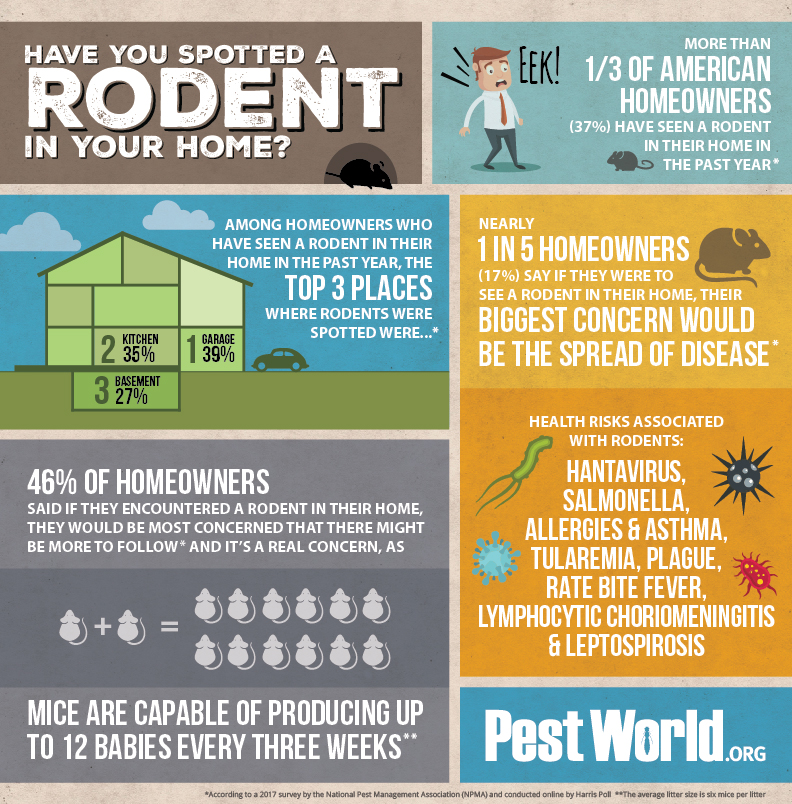The Duty Of Bug Control In Food Safety And Security And Hygiene
The Duty Of Bug Control In Food Safety And Security And Hygiene
Blog Article
Short Article By-Haslund Johns
Are you familiar with the surprise risks that parasites position to the safety and security and health of your food? From rats to insects, these unwanted visitors can contaminate your active ingredients, surface areas, and storage space locations.
This write-up explores the critical role of pest control in maintaining the highest possible criteria of food safety and security and hygiene. Discover effective methods and avoidance measures that will help you secure your company, consumers, and credibility.
Do not let parasites endanger the top quality of your food.
The Effect of Pests on Food Security and Hygiene
In your kitchen area, bugs can have a considerable influence on food safety and health. These undesirable visitors, such as rats, bugs, and cockroaches, can infect your food, surface areas, and utensils with hazardous bacteria, viruses, and bloodsuckers. They can conveniently access your cupboard, cupboards, and even your fridge, leaving droppings, pee, and hair.
Not just can they ruin your food by eating via packaging, yet they can additionally spread illness like Salmonella, E.coli, and Listeria. Picture preparing a meal for your family members, uninformed that the active ingredients you're utilizing are already polluted.
It's critical to take immediate activity to avoid and regulate bugs in your kitchen. Normal cleaning, correct food storage, and expert pest control procedures are necessary to make certain food safety and security and keep a hygienic atmosphere in your kitchen area.
Effective Pest Control Approaches for the Food Market
Implementing reliable parasite control approaches is vital for preserving food safety and hygiene in the food industry. By implementing simply click the up coming document , you can protect against parasites from contaminating the food and guarantee that your products are secure for usage.
One efficient strategy is to routinely evaluate and check your center for indicators of bug activity. This includes checking for droppings, nests, or any kind of damage caused by parasites.
It's additionally vital to secure all access points to protect against parasites from getting in the facility. Routine cleaning and sanitation are important, as bugs are drawn in to food deposit and spills.
Furthermore, correct waste management is essential to avoid the build-up of food waste that can draw in parasites.
Keeping Health Specifications With Parasite Prevention Procedures
To keep hygiene requirements, you must consistently apply pest avoidance actions. By taking read the article to prevent pests from entering your food establishment, you can ensure the safety and sanitation of your properties. Below are some effective pest prevention actions to consider:
- Seal all cracks and gaps: Bugs can get in through also the tiniest openings. Consistently examine and secure any gaps in doors, home windows, wall surfaces, and floorings to maintain pests out.
- Appropriate waste monitoring: Dispose of food waste quickly and firmly in secured containers. This will reduce the destination of insects and prevent infestations.
- Normal cleansing and sterilizing: Preserving tidiness in your facility is critical. On a regular basis clean and sanitize all areas, paying unique attention to locations where insects might hide or breed.
- Apply a tracking system: Consistently evaluate your facilities for signs of insect activity. Mount pest tracking tools, such as catches or sensors, to determine and attend to any possible problems beforehand.
Verdict
So bear in mind, when it comes to food safety and health, parasite control plays an important role.
By implementing effective insect control techniques and preventive measures, we can make sure the highest criteria of sanitation and safety in the food sector.
Do not allow pests endanger the high quality of our food; let's stand together and safeguard our health and well-being.
